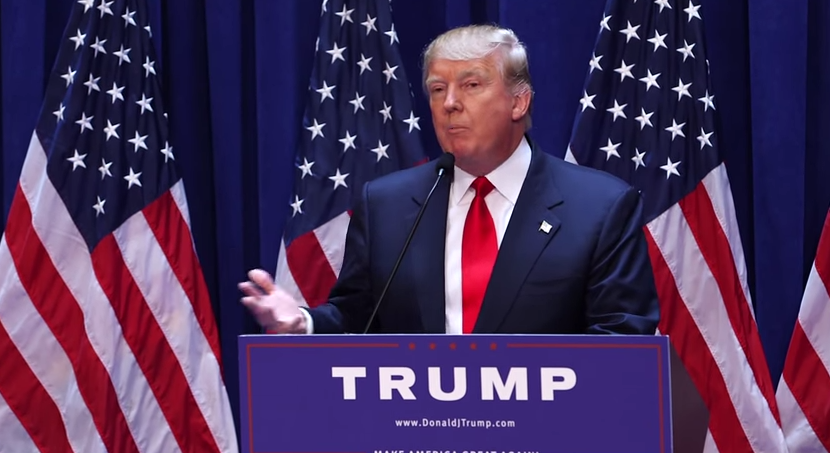Jonathan Merritt’s article on Pope Francis and cultural attitudes towards Christianity reminded me of college. Specifically, it reminded me of Philosophy 102 and how there’s always that one guy in those courses who lives for the “gotcha” moment. You know who I am talking about: The student who waits for everyone to finish their whiff at the problem of evil or Augustine’s metaphysics, before dropping a zesty observation or a handwringing moral dilemma that has the rest of the class stunned silent. This person will rarely contribute towards the class’s understanding; he just lives to see the widening eye of despair of someone who missed The Obvious.
Merritt argues that, contra “some Christians” (specifically, conservative evangelicals; the post is meta-tagged “Religious Right”), American culture is not hostile or opposed to Christianity. Pope Francis, for example, was named Time Magazine’s Man of the Year in 2013. Media coverage of Rome’s bishop has been overwhelmingly positive. This demonstrates, Merritt says, that cultural antagonism is actually directed not at Christianity per se but towards certain kinds of hypocritical or false Christianity:
This is not a uniquely 21st century trend, of course. Rewind to the 1990s: Mother Teresa vs. Jerry Falwell. The point is that people don’t like mean people and judgmental people and power-hungry people, regardless of their religion. Most people dislike Christian jerks because they are jerks, not because they are Christian…
But misdiagnosing the impetus for society’s rejection of some Christians is advantageous for those who have a vested interest in the matter. Perpetuating the everybody-hates-Christians narrative allows people to victimize themselves, demonize others, incite fear, and raise truckloads of money.
Some secularists and atheists, of course, despise Christians just for being Christians. But the Richard Dawkins brand of adversary is the outlier and the exception. The far-reaching popularity of the pope proves that there is more at work in the minds of the masses than an intrinsic, irrational hatred of the Christian faith.
Now, I think Merritt’s last sentence is correct. The reality of American culture is rarely if ever as simple as “Take Back America” war cries indicate. But Merritt conflates or ignores so many different issues that it is difficult to determine whether he makes his argument in good faith. His argument offers a blatantly false dichotomy between two perceptions rather than two realities.
An example of this is the Bowdoin Christian Fellowship. It’s not at all clear how Merritt would classify the university’s locking out of BCF’s leaders. Was it because they were jerks? No it wasn’t because they weren’t. Was it because they were “demonizing others,” “inciting fear” and earning “truckloads”? By Merritt’s own logic, it’s not likely that the action against BCF was animus towards their beliefs; it was probably a reasonable grating against their bullying behavior.
This is nothing less than a fundamentalist argument: If the facts don’t fit the categories, the facts must be wrong. If you are a member of the Bowdoin Christian Fellowship and a fellow Christian tells you that a picture of the Pope on the cover of Time means that you are not really being targeted for your beliefs, what can you say? Of course, if Merritt’s argument had been merely that American culture is not as antagonistic towards Christianity as some believers say, he would have a point, but that’s not what he is saying.
Who exactly was the Klein family bullying when the state of New Mexico fined them the “price of citizenship” for not wanting to bake a wedding cake? To whom was Brendan Eich being a jerk when he was pressured to resign for one time support of Proposition 8? By refusing to even acknowledge the recent uptick in cultural and legal pressure on traditional Christians, Merritt’s article rings a hollow note of pretension. As Merritt himself says, the truth about culture’s relationship to Christianity is “complicated.” Why then has he submitted a hopelessly simplistic thesis?
Christians have survived culture shift before. In the early 20th century progressive theologians warned that if supernaturalism were not abandoned the faith would collapse under the crushing weight of science and higher criticism. Many churches adopted a non-theological “social Gospel” in order to remain relevant to post-Darwin society (those churches are now referred to as “mainline” and you are more likely to visit one as a tourist than a parishioner).
What’s different about 2014 is that many evangelicals sense a codifying of values that exclude them from participating in the public square. As Nancy Pearcey has written, evangelical identity is about believing that Christianity is not only theology but “total truth” for all of life. Evangelicals, in their best moments, seek to order their marriages, finances and values around Scripture. That’s why cases like Hobby Lobby matter. If a Christian business owner is legally prohibited from defining which contraceptives she will and won’t sponsor for her employees, she is legally disabled from applying her beliefs in a holistic way. It doesn’t take hatred for Christians to believe Hobby Lobby should be forced to buy all kinds of contraceptives for employees, but it does require a definition of religious freedom that frightens many evangelicals.
I wish Merritt would read Alan Noble’s careful yet honest essay at The Atlantic. Noble’s article, “Is Evangelical Morality Still Acceptable in America,” strikes a good balance in tone between mature recognition of evangelical fault lines and genuine concern at the gerrymandering of traditional Christians out of the public square:
Often, the Christian defense of what they believe is their religious liberty is framed as fundamental hatefulness, homophobia, and misogyny, rather than disagreement grounded in morality. Much to the shame of the faith, a few who claim to be Christian really are motivated by hate. Those who disagree with them see little point in engaging with them on these issues, which is understandable, but it’s unfair and counterproductive to extend that attitude to all evangelical Christians. If the evangelical worldview is deemed invalid in the public sphere, then the public sphere loses the value of being public. American discourse will be marked by paranoid conformity, rather than principled and earnest disagreement. And our ability to prophetically speak to one another and to our nation’s troubles will be restrained.
There’s value in being reminded that American culture is not monolithic in its relationship with Christianity (or any other religion). But any conversation about faith and the public square must deal honestly with how the intellectual real estate of traditional Christian belief is shrinking. Merritt, as one of the more progressive young evangelicals, might think that’s a good thing. He’s welcome to the perspective, just not a denial of reality.











